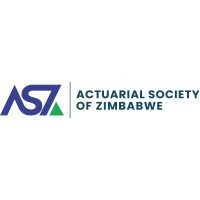
THE Actuarial Society of Zimbabwe (ASZ) is establishing modalities to enable a new fund to allow cashless compensation for individuals affected by road traffic accidents, NewsDay Business has gathered.
Last month, Cabinet approved the principles of the Road Accident Fund Bill, which seeks to provide emergency treatment, medical and funeral expenses for road accident victims.
According to the Bill, the fund will be financed mainly through motor vehicle insurance premiums, with a goal to reduce road accident deaths and injuries by 2030.
In an interview with NewsDay Business on the sidelines of the ASZ’s 11th annual convention, the society’s member and Old Mutual Africa Regions actuarial manager, Sheila Kirika (pictured), said the proposed fund seeks to create a more efficient and sustainable system that prioritises rehabilitation and support for accident victims.
She is providing technical assistance to ASZ in crafting the modalities and technicalities for the fund.
“From the beginning, actuaries are the ones proposing this new structure, and it will be done sustainably. The model that we are proposing is a partnership between insurance companies in the private sector and the government,” Kirika said.
“Since private insurers will be shareholders in this road accident fund, there will be some level of corporate governance, which will prevent misuse of funds.”
- Actuaries set to regulate members
- Interview: Actuaries boss lays out Zim legal game plan
- It’s dog eat dog in insurance sector
- Actuarial convention roars to life
Keep Reading
She added that the proposed fund would provide a no-fault compensation system, where victims would receive benefits in kind, such as medical treatment and rehabilitation, rather than cash payouts.
“The compensation that I am proposing is cashless; it is mainly focused on rehabilitation,” Kirika said.
“So, the cash is paid directly from the Road Accident Fund to the medical providers, because of that, there are no avenues of fraud since there is no cash that is exchanging hands.”
During the first quarter of 2025, the Insurance and Pensions Commission received 29 complaints against the short-term insurance sector, reflecting a 7% increase from the 27 complaints received during the same period in 2024.
From this amount, delays in the settlement of claims were the major source of complaints, constituting 59% of the complaints, followed by repudiation and unsatisfactory service.
ASZ’s proposal will allow for faster settlements of compensation as it will go through fewer rigorous checks. It will also be cashless.
“If someone loses her husband due to an accident, they will be given an annuity, thus getting the money every month,” Kirika said.
“The Road Accident Fund will have case agents who will be visiting the widow to check that the money is going to where it is supposed to go. If it is a family business, that business should be getting money as well, and this will be monitored by cash agents.”
She highlighted that the proposed fund would have an ambulance service that would respond to accidents quickly, reducing the risk of further injury.
The fund will also have a centralised database that would allow for the uploading of photos and videos of accidents, reducing the need for police reports.
“In South Africa, the road accident fund has a fault-based compensation, meaning that you have to prove your percentage of fault before you get an award. This means that the more fault you are, the less award you get, and it then brings lawyers,” Kirika said.
“Lawyers often end up getting a lot of the pay once you get your final settlement. With a no-fault-based compensation, the first advantage is that you cut lawyers. You do not need to prove your percentage fault, meaning that rogue lawyers will not be able to take advantage of the person claiming.”
She highlighted the example of Namibia’s Motor Vehicle Accident Fund, which has a similar structure and has been successful in providing compensation to accident victims.
The Namibian fund is making surpluses, according to its latest financials.
Kirika called for a meeting with the Ministry of Transport and Infrastructure Development to discuss the proposal.










